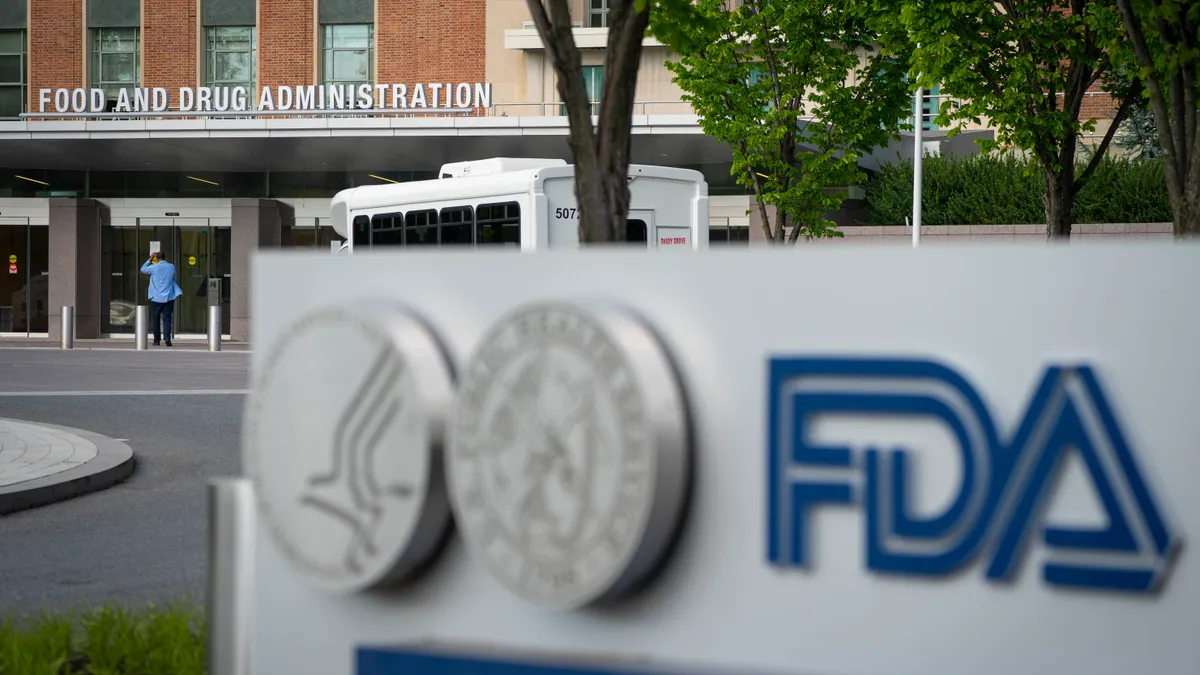Dive Brief:
- The Food and Drug Administration sent warning letters to two Chinese nonclinical labs that provide testing and validation data services to device manufacturers.
- The letters, which the FDA sent to Mid-Link Testing Company and Sanitation and Environmental Technology Institute (doing business as SDWH), describe oversight failures and animal care violations that raise concerns about the quality and integrity of the labs’ data, the FDA said in a Wednesday notice. The letters were dated for Tuesday.
- Believing the data to be unreliable, the FDA does not plan to authorize submissions that rely on results from the labs and is assessing the impact of its inspection findings on past submissions.
Dive Insight:
The FDA published an alert in February about an “alarming” rise in the inclusion of “testing data that are fabricated, duplicated from other device submissions or otherwise unreliable” in premarket submissions. The next week, FDA officials began an inspection of Mid-Link. On the day that inspection ended, FDA officials started an assessment of SDWH.
At Mid-Link, FDA investigators focused on 11 studies, nine of which were acute systemic toxicity and rabbit pyrogen tests. However, the agency stated in the warning letter that the list is “not an all-inclusive list of studies and submissions impacted by the inspection or by the violations cited in this letter.”
The administration found the study director failed to assure all experimental data were accurately recorded and verified. In several studies, multiple animals gained exactly the same weight.
The FDA investigators felt it was improbable that the weight gain was identical. A Mid-Link study director agreed, telling the officials that “‘when technicians could not get a stable reading, they recorded a number by adding a certain number based on the animal weights in the previous day’s measurement,’” according to the letter.
The Mid-Link warning letter includes five sets of other observations, including the failure of testing management to ensure that personnel understand their functions, the failure of the quality assurance unit to monitor the studies, and concerns related to animal care. FDA investigators found “some animals did not appear to breathe normally,” among other concerns.
The warning letter sent to SDWH includes other animal care concerns.
Inspectors found no standard operating procedures for animal care at the SDWH facility, including a lack of a process for monitoring anesthetized animals. The warning letter also describes failures related to the accurate recording of experimental data, monitoring of deviations from approved protocols and the need to employ staff with the required education, training and experience.
Overall, the FDA said it found “pervasive failures with data management, quality assurance, staff training and oversight” that raise questions about the quality and integrity of the data collected at the facilities. The failings could lead to the use of unreliable data in premarket device submissions.
That conclusion has implications for medical device companies that plan to seek authorization on the strength of data generated at the two sites. The fallout could extend to companies that have already received authorizations based on data from the two labs, with the FDA saying it will evaluate past submissions and “take action to address any public health risks as necessary.”
Owen Faris, acting director of the Office of Product Evaluation and Quality in the FDA’s Center for Devices and Radiological Health, cautioned device makers that they are responsible for all data.
“We strenuously remind industry of their responsibility and accountability for all data included in their submissions, which are required to comply with federal law,” Faris said in the agency’s notice.
The FDA has also recently cracked down on Chinese manufacturers of plastic syringes and companies disturbing syringes made in China due to safety and quality concerns with the products.










